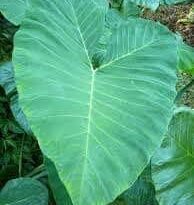The Lemon Pedicels: Economic Importance, Uses, and By-Products
Lemon pedicels are a crucial part of the lemon fruit anatomy, often overlooked despite their significant role in fruit development and maturation. Scientifically termed as the peduncles or stalks that attach the lemon fruit to the tree, pedicels play essential roles in nutrient transport, signaling, and structural support.
Structurally, lemon pedicels consist of vascular tissues that facilitate the movement of water, minerals, and sugars between the lemon fruit and the tree.
These tissues include xylem, responsible for water and mineral transport from roots to fruits, and phloem, which transports sugars produced during photosynthesis from leaves to other parts of the plant. This vascular system ensures that the lemon fruit receives essential nutrients and water for growth and development.
Moreover, lemon pedicels serve as conduits for signaling molecules and hormones that regulate various physiological processes within the fruit. Ethylene, for instance, is a plant hormone involved in ripening and senescence. Its transport through pedicels influences the timing and uniformity of lemon fruit ripening, impacting fruit quality and marketability.
The structural integrity provided by lemon pedicels is vital throughout the fruit’s development. Initially, pedicels support the growing fruit, ensuring it remains attached to the tree and receives adequate nutrients.
As the fruit matures, pedicels continue to provide support, preventing premature detachment or damage due to environmental stresses such as wind or rain. This structural support is crucial for ensuring that the lemon fruit reaches optimal size and quality before harvest.
From a botanical perspective, lemon pedicels undergo significant changes during fruit development. Initially green and pliable, they gradually lignify and harden as the fruit matures. This lignification process strengthens the attachment between the fruit and the tree, reducing the risk of detachment during adverse weather conditions or mechanical disturbances.
The color and texture of lemon pedicels also undergo changes as the fruit ripens. In some lemon varieties, pedicels may turn brown or yellowish as the fruit reaches maturity, signaling readiness for harvest. This visual indicator is essential for determining the optimal time for fruit picking to ensure peak flavor and nutritional content.
In addition to their physiological roles, lemon pedicels have culinary and commercial significance. In the food industry, they are sometimes used in recipes for their aromatic qualities, adding subtle citrus notes to dishes or beverages. Furthermore, the presence and condition of pedicels can affect the marketability of lemons, as intact, healthy pedicels are often associated with freshness and quality.
Lemon pedicels play multifaceted roles in the growth, development, and commercial value of lemon fruits. From nutrient transport and hormonal regulation to structural support and culinary uses, these often-overlooked structures are integral to the life cycle and economic importance of lemons.
Understanding the scientific aspects of lemon pedicels enhances our appreciation of their contributions to fruit physiology and agricultural practices, highlighting their importance beyond mere attachment points.
The Economic Importance and Uses of Lemon Pedicels

1. Fruit Retention: Lemon pedicels help in retaining the fruit on the tree until it reaches maturity, ensuring the fruit gets all necessary nutrients and grows to its optimal size.
2. Quality Assurance: Strong pedicels reduce the likelihood of premature fruit drop, ensuring that only fully developed lemons are harvested, which is essential for market quality standards.
3. Harvest Efficiency: Pedicels make it easier to harvest lemons by providing a natural handle, which speeds up the manual harvesting process and reduces labor costs.
4. Post-Harvest Handling: Lemons with intact pedicels are less prone to damage during transportation and storage, maintaining fruit quality and extending shelf life.
5. Agricultural Yield: Healthy pedicels contribute to higher yield by minimizing fruit loss, directly impacting the profitability of lemon orchards.
6. Disease Resistance: Pedicels serve as a barrier to certain pathogens, helping to maintain the health of the fruit and reducing the need for chemical treatments.
7. Market Value: Fruits with intact and healthy pedicels are often considered fresher and more appealing, fetching higher prices in the market.
8. Juice Production: Intact lemons with healthy pedicels are preferred in juice production because they are less likely to be damaged, ensuring higher juice yield and quality.
9. Essential Oils: Lemon pedicels contain essential oils that can be extracted and used in perfumes, aromatherapy, and cleaning products.
10. Flavor Enhancer: The oils from lemon pedicels can be used as a natural flavor enhancer in culinary applications, especially in desserts and beverages.
11. Nutrient Source: Lemon pedicels are rich in certain phytonutrients that can be used in dietary supplements and health products.
12. Cosmetic Industry: Extracts from lemon pedicels are used in cosmetic products for their astringent and antiseptic properties.
13. Herbal Medicine: In traditional medicine, parts of the lemon pedicel are used for their purported health benefits, including digestion aid and detoxification.
14. Crafting and Decor: Dried lemon pedicels can be used in crafting and home decor, adding a natural and aromatic element to various products.
15. Animal Feed: By-products from lemon pedicels can be processed into animal feed, providing a nutritious supplement for livestock.
16. Biofertilizer: Decomposed lemon pedicels can be used as organic fertilizer, enriching soil with essential nutrients and improving crop yields.
17. Pest Control: The natural oils in lemon pedicels can act as an insect repellent, providing an eco-friendly alternative to chemical pesticides.
18. Eco-Friendly Packaging: Lemon pedicels can be utilized in the production of biodegradable packaging materials, promoting sustainable practices in the packaging industry.
Read Also: Properties of Milk, Processing Methods, Packaging and Distribution
The Products and By-products That Can Be Derived From Lemon Pedicels

1. Essential Oil Extraction: Lemon pedicels are distilled to extract essential oils, used in perfumes, aromatherapy, and cleaning products.
2. Lemon Extract: Concentrated lemon extract can be obtained from pedicels for use in culinary and flavoring applications.
3. Lemon Tea: Dried lemon pedicels are used to make herbal tea, known for its refreshing taste and health benefits.
4. Natural Pesticides: The oils in lemon pedicels are processed into natural pesticides, providing an eco-friendly alternative to chemical pesticides.
5. Compost: Lemon pedicels are composted to create rich organic matter, improving soil health and fertility.
6. Dietary Supplements: Extracts from lemon pedicels are used in dietary supplements for their high antioxidant content.
7. Animal Feed Additive: Processed lemon pedicels are added to animal feed, enhancing its nutritional value.
8. Aromatic Candles: Lemon pedicel oils are used in the production of aromatic candles, providing a fresh citrus scent.
9. Cleaning Products: The natural oils from lemon pedicels are incorporated into eco-friendly cleaning products due to their antibacterial properties.
10. Skin Care Products: Extracts from lemon pedicels are used in skin care products for their astringent and cleansing properties.
11. Decorative Items: Dried and treated lemon pedicels are used in crafting decorative items like potpourri and wreaths.
12. Biodegradable Packaging: Processed lemon pedicels are used to make biodegradable packaging materials, reducing plastic waste.
13. Herbal Remedies: Lemon pedicels are used in herbal medicine for their purported health benefits, including digestive aid.
14. Culinary Seasonings: Ground lemon pedicels are used as a seasoning in various dishes, adding a unique flavor profile.
15. Beverages: Extracts from lemon pedicels are used in the production of flavored beverages and cocktails.
16. Furniture Polish: Lemon pedicel oils are used in furniture polish, providing a natural shine and pleasant aroma.
17. Paints and Varnishes: Natural oils from lemon pedicels are incorporated into eco-friendly paints and varnishes, offering a sustainable alternative to traditional products.
Read Also: The Coconut Milk: Economic Importance, Uses, and By-Products
Frequently Asked Questions (FAQs) About Lemon Pedicels

1. What are lemon pedicels?
Lemon pedicels are the small stalks that attach the lemon fruit to the tree. They play a crucial role in the nutrient transport and fruit retention process.
2. How do lemon pedicels impact fruit quality?
Healthy pedicels help in retaining the fruit on the tree until it fully matures, ensuring the fruit develops properly and meets market quality standards.
3. Can lemon pedicels be used in cooking?
Yes, lemon pedicels can be used in cooking, particularly in making teas and as a flavoring agent due to their aromatic properties.
4. What products are derived from lemon pedicels?
Various products such as essential oils, natural pesticides, dietary supplements, and skin care products can be derived from lemon pedicels.
5. Are there any health benefits of lemon pedicels?
Yes, lemon pedicels contain phytonutrients and antioxidants that are beneficial for health, including aiding digestion and providing detoxification benefits.
6. How are lemon pedicels used in agriculture?
Lemon pedicels can be composted into biofertilizer, used in animal feed, and processed into natural pesticides, promoting sustainable agricultural practices.
7. What is the role of lemon pedicels in harvesting?
Lemon pedicels act as natural handles, making it easier to harvest the fruits and reducing the chances of damage during picking.
8. Can lemon pedicels be used in the cosmetic industry?
Yes, extracts from lemon pedicels are used in various cosmetic products for their astringent and antiseptic properties.
9. Are lemon pedicels used in traditional medicine?
Lemon pedicels are used in traditional herbal remedies for their purported benefits, such as aiding digestion and detoxifying the body.
10. What environmental benefits do lemon pedicels offer?
Lemon pedicels can be used to produce biodegradable packaging materials and natural pesticides, contributing to eco-friendly and sustainable practices.
Read Also: Understanding the Cost of Waste Recycling









